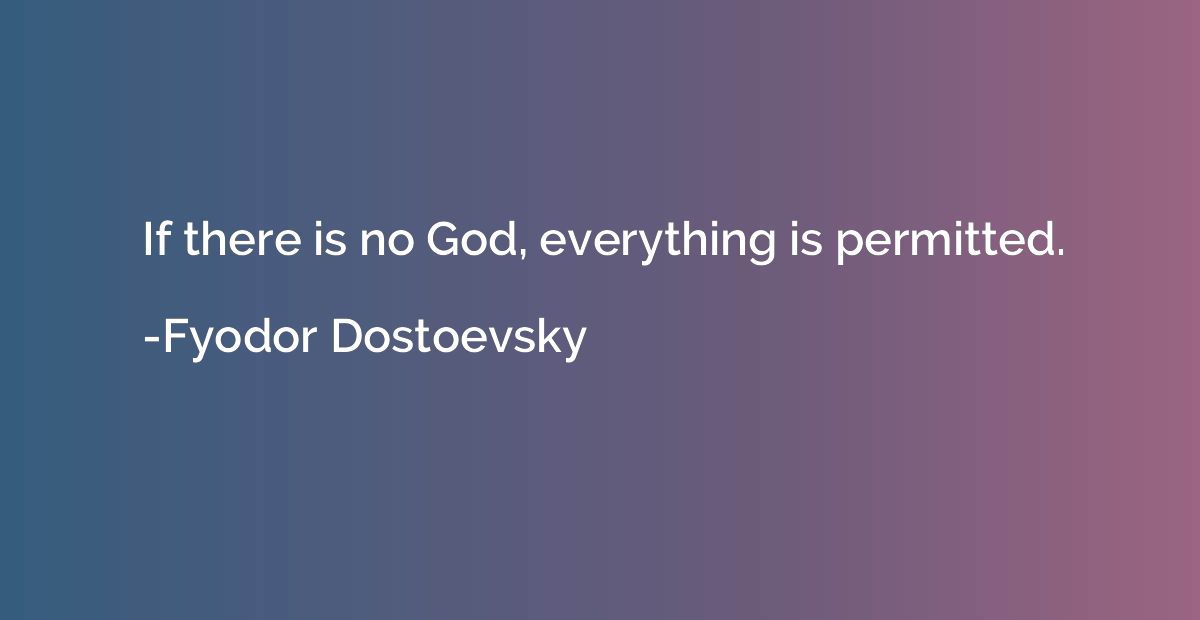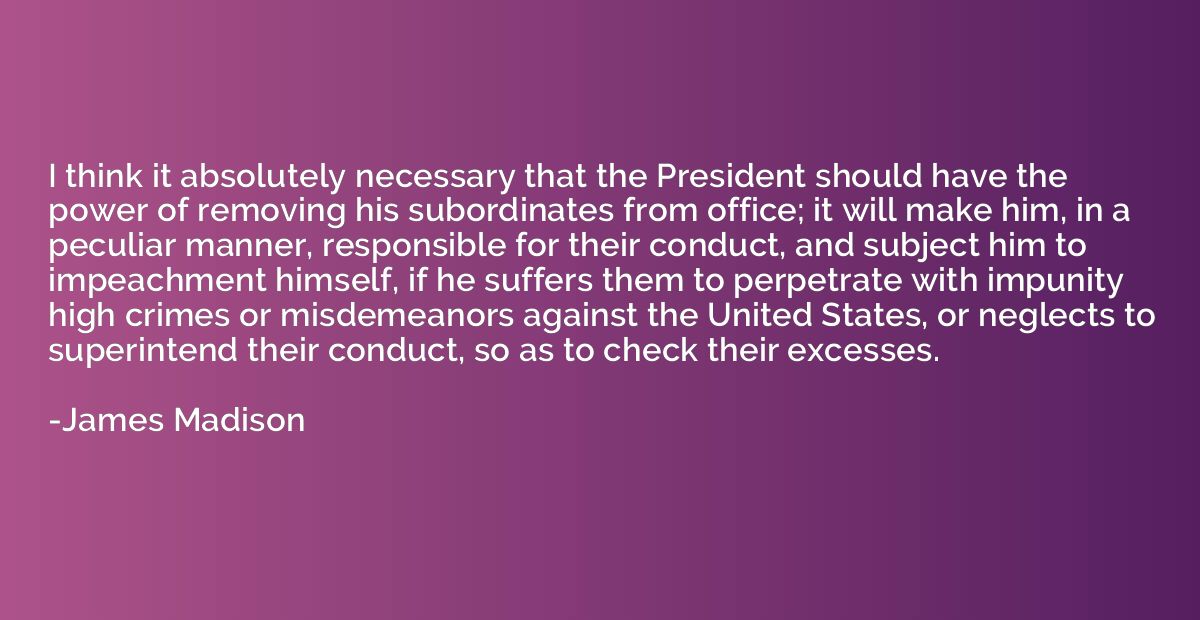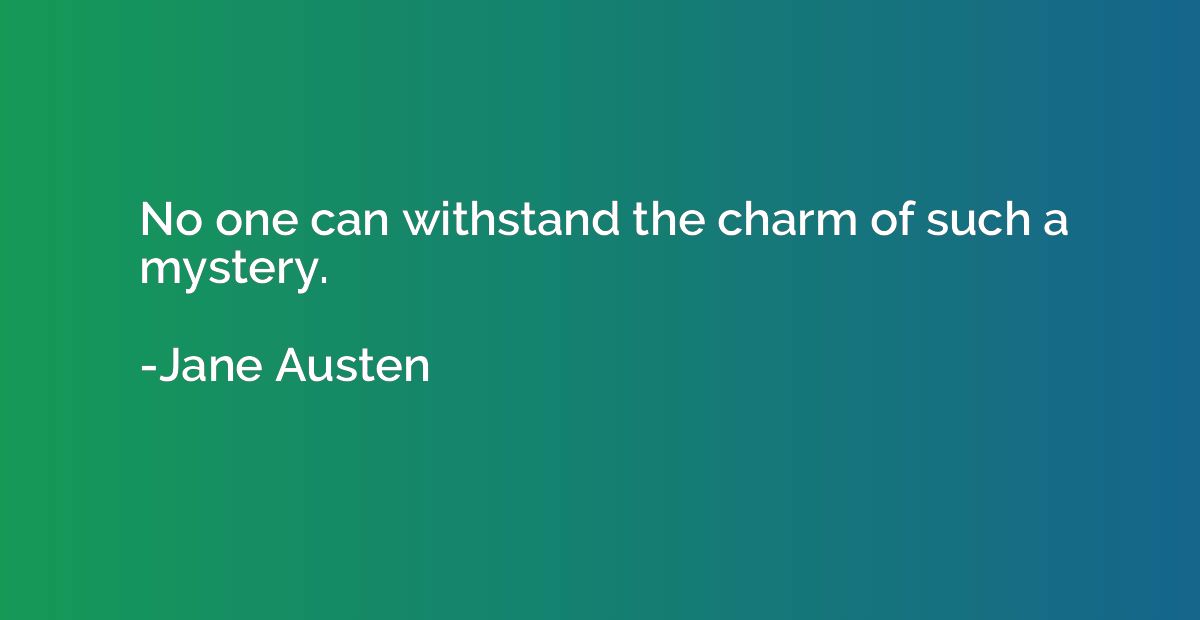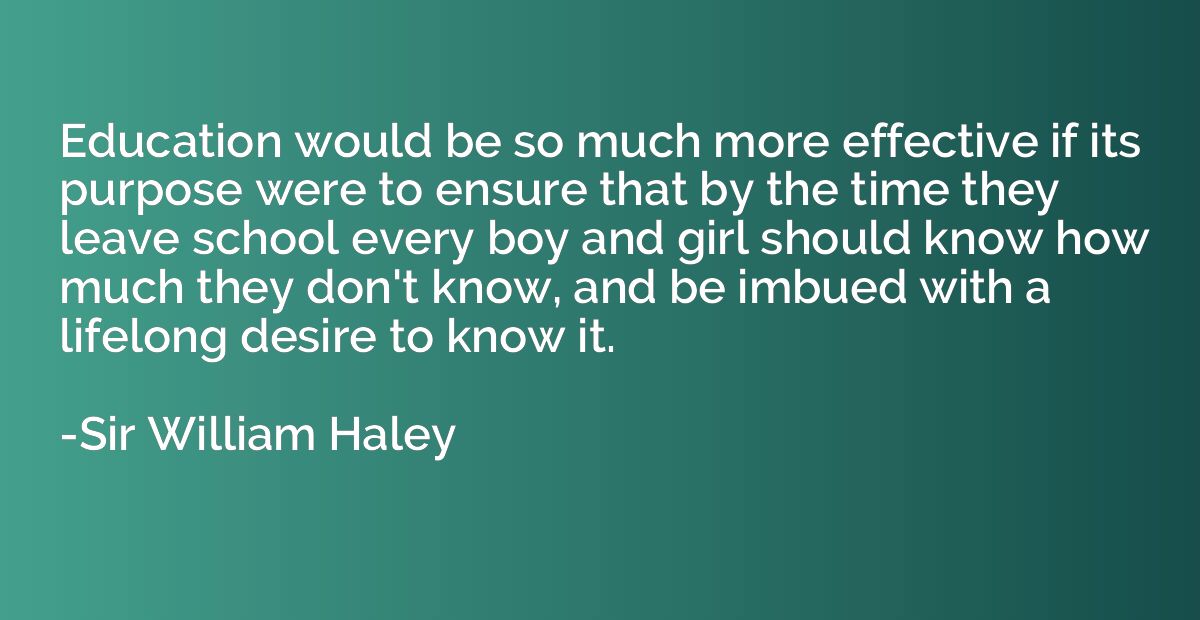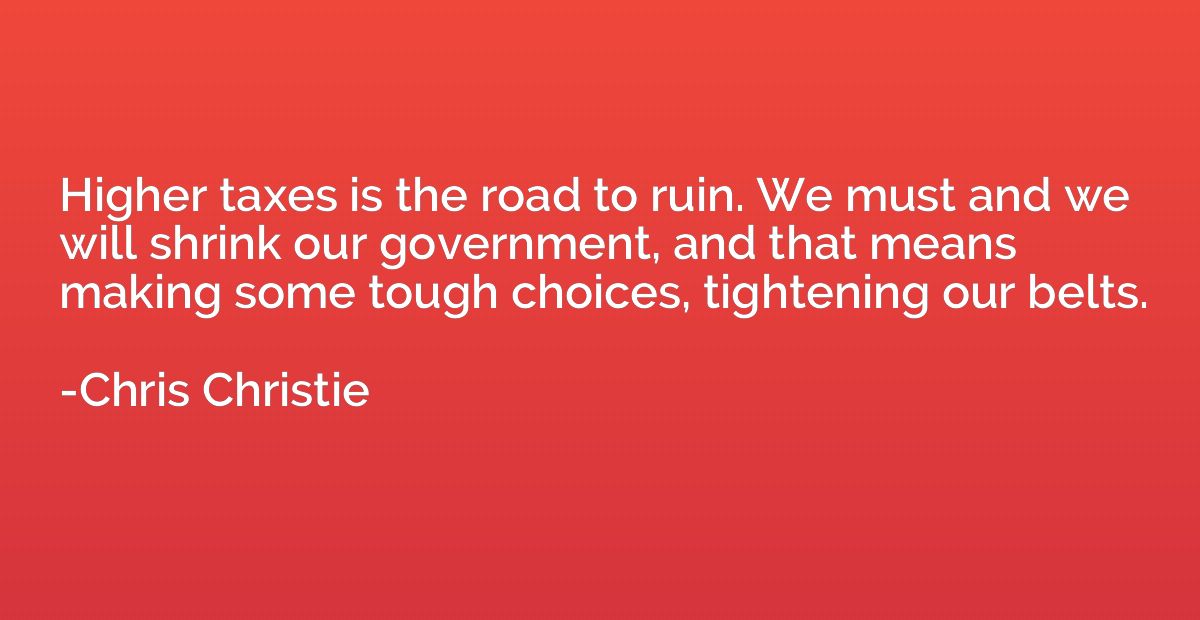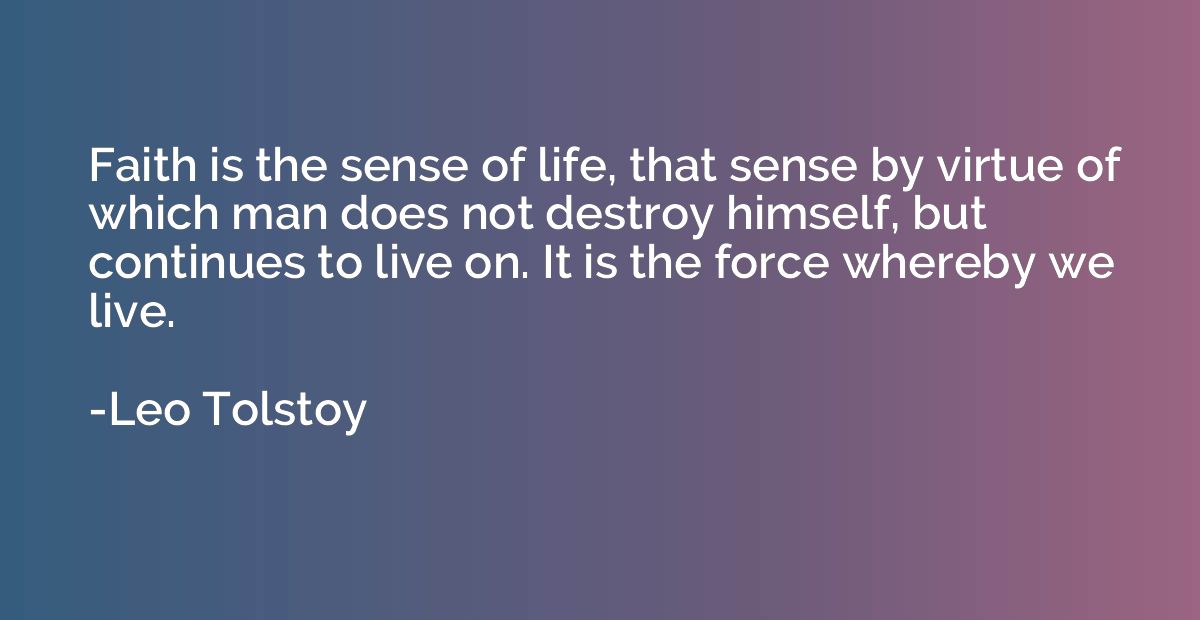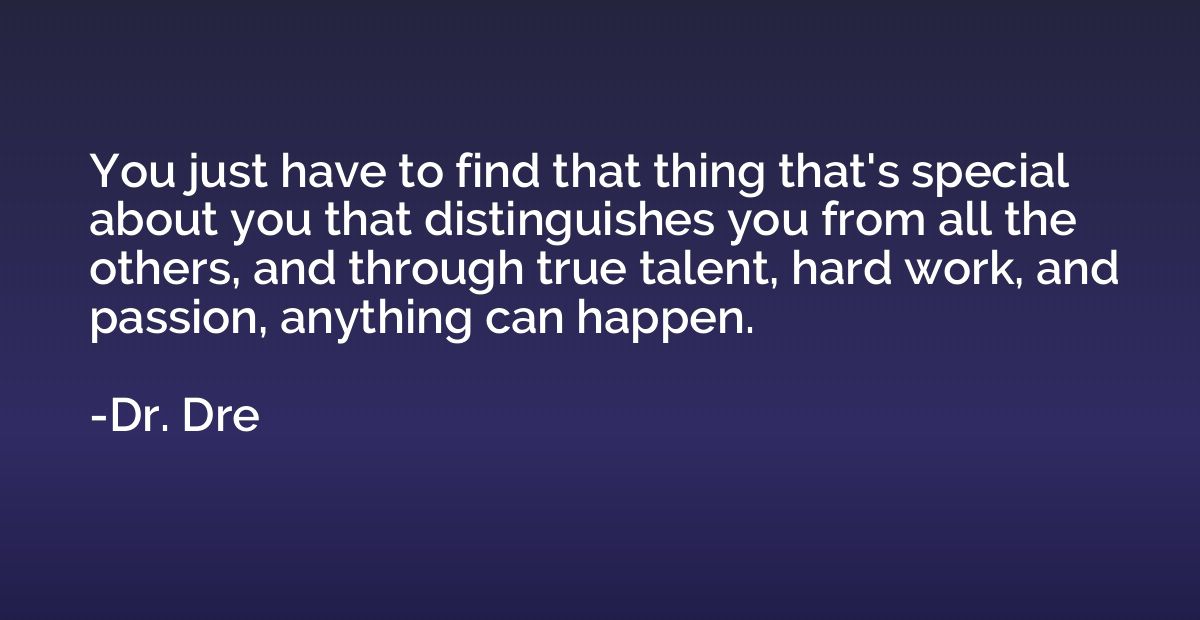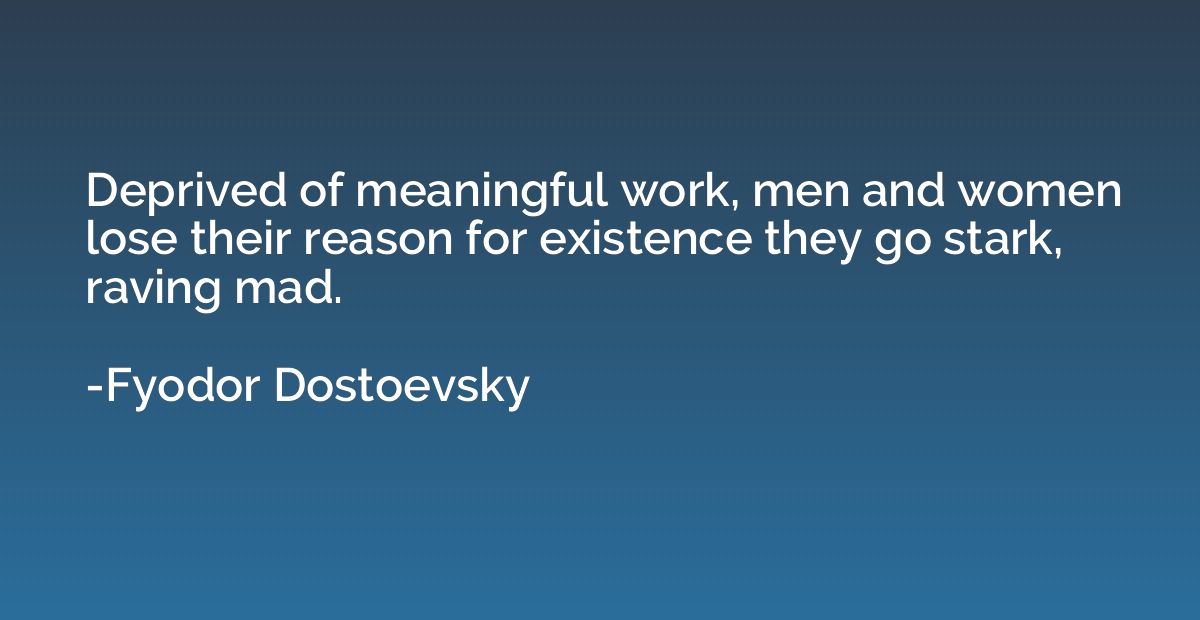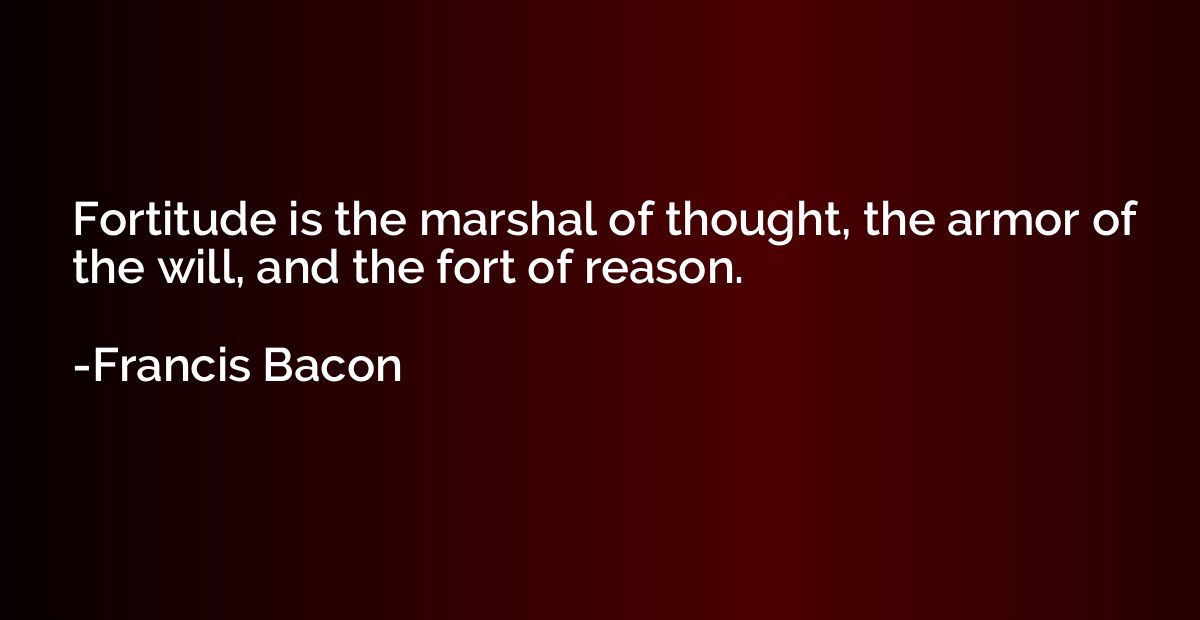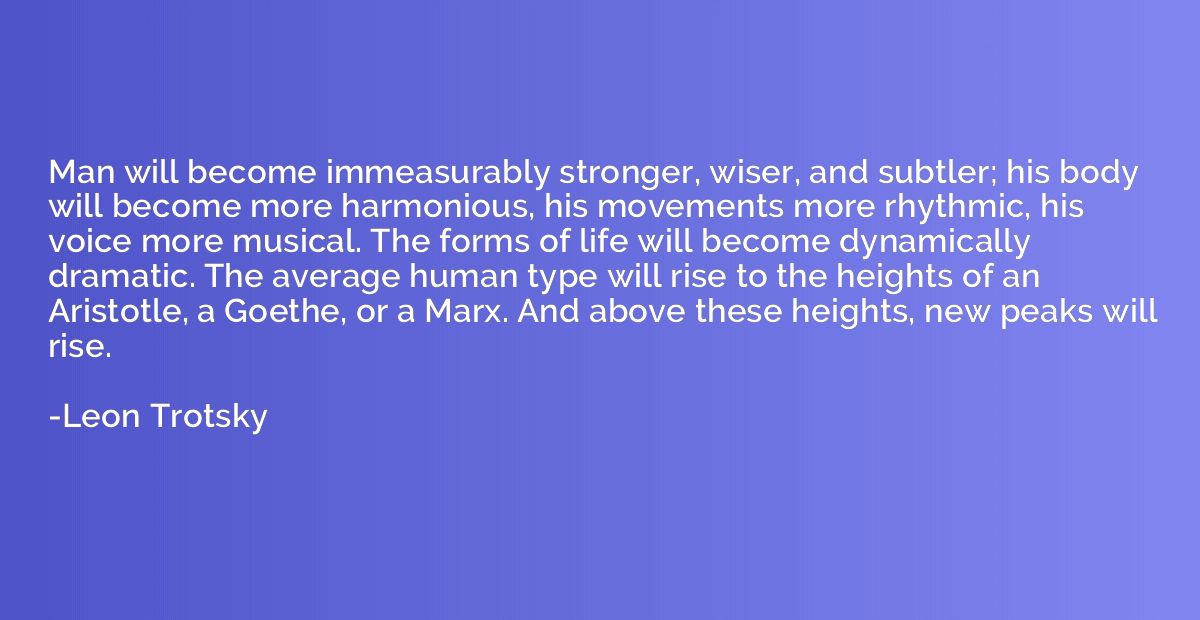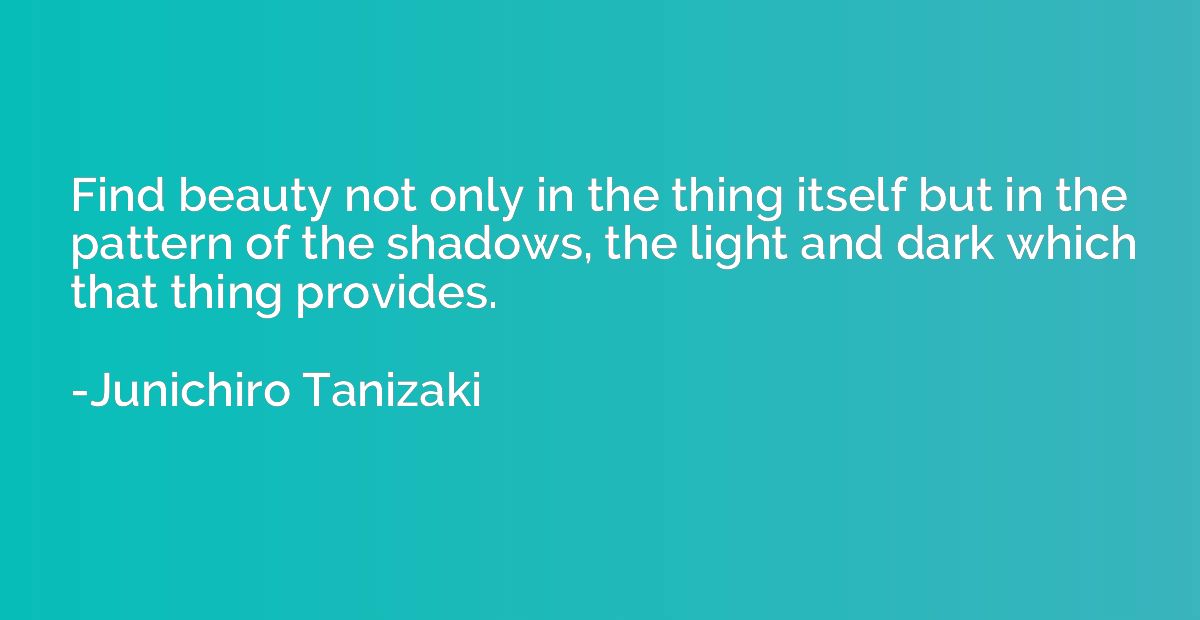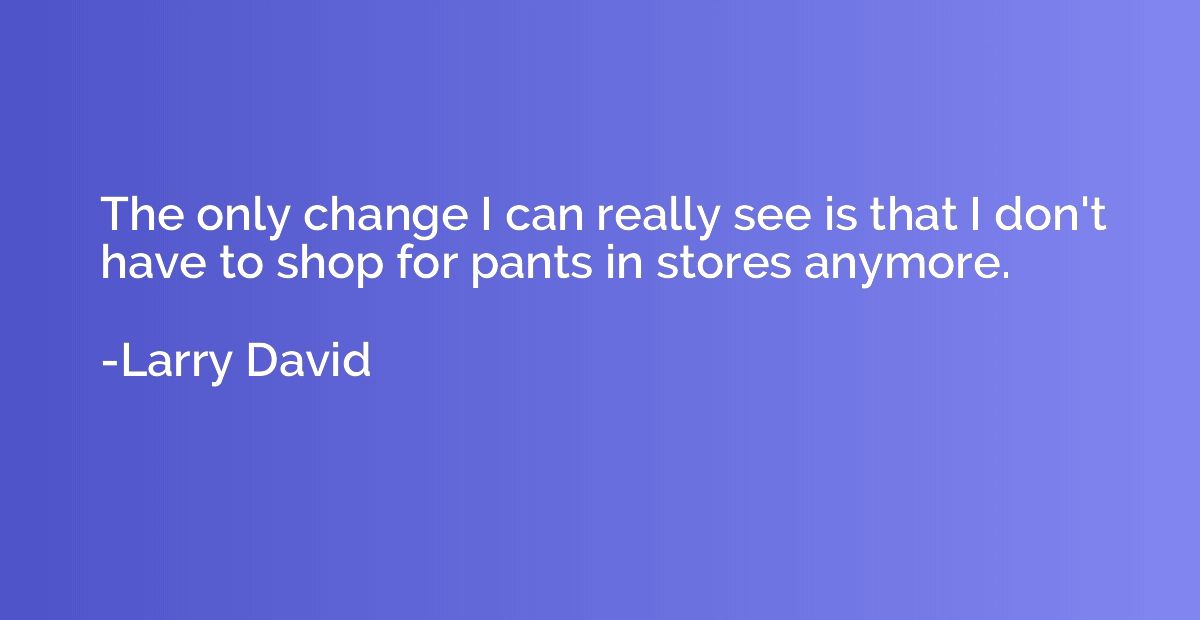Summary
This quote, often attributed to Russian novelist Fyodor Dostoevsky, suggests that without the belief in a higher power or moral force, there is no ethical boundary or authority to govern human behavior. In the absence of God or a concept of absolute morality, one can argue that anything becomes permissible since there is no ultimate consequence or judgment for one's actions. It highlights the philosophical dilemma regarding the source of morality and the potential consequences of a world without a higher guiding principle.
